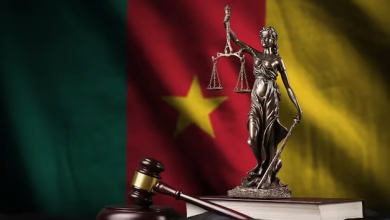Can Africa Build a Strong and United Bar Association That Truly Represents Its Lawyers?
Authored by: Bryan Miller

For decades, the African legal fraternity has watched as bar associations in other parts of the world shape policies, influence governments, and create powerful networks that elevate the legal profession. The American Bar Association (ABA) dictates legal discourse in the U.S., the Council of Bars and Law Societies of Europe (CCBE) strengthens legal unity across the EU, and even regional bodies like the South Asian Bar Association (SABA) foster cross-border collaboration. But in Africa, where lawyers play a crucial role in governance, justice, and human rights, a unified, functional, and visible bar association seems more like a distant dream than a reality.
Where Does Africa Stand?
The Pan African Lawyers Union (PALU) exists as a continental bar association, but let’s be honest—how many African lawyers actively engage with it? How many law students even know it exists? Unlike its counterparts in the U.S. and Europe, PALU remains largely invisible in shaping the continent’s legal trajectory. Why is that? Is it a failure of branding, leadership, funding, or relevance?
Meanwhile, most African lawyers remain deeply tied to their national bar associations, where their primary legal battles, professional recognition, and networking opportunities exist. But does this national focus come at the expense of continental unity?
Why Has a Unified African Bar Struggled to Take Off?
1. A Continent of Many Legal Systems
Africa’s legal diversity is both a strength and a challenge. Some countries operate under common law (Nigeria, Ghana, Kenya, South Africa), others follow civil law (Francophone and Lusophone Africa), while Islamic and customary laws also hold significant influence. How do you create a single legal association when legal traditions are so different?
2. The Battle Between National and Continental Loyalties
African lawyers identify more with their national bar associations, where they are licensed, trained, and recognized. The Nigerian Bar Association, Ghana Bar Association, and Law Society of Kenya, for example, are deeply rooted in national legal affairs. But does this focus make lawyers blind to the need for a larger, united front?
3. Weak Institutional Frameworks and Leadership
A strong bar association needs visionary leadership, clear governance structures, and sustainable funding. The ABA and CCBE thrive because they actively shape policy, influence laws, and provide value to their members. Does PALU do this effectively for African lawyers? If not, what is stopping it?
4. Lack of Awareness and Engagement
If most lawyers don’t know about PALU or its benefits, how can it ever grow into an influential body? Without active participation from legal professionals across Africa, it risks becoming a passive organization rather than a powerful voice for the profession.
5. Financial and Logistical Constraints
Creating a truly continental bar association requires money, structure, and logistical coordination. With 54 countries, multiple legal traditions, and varying economic conditions, how can a single organization finance its operations and maintain relevance?
What Would a Functional African Bar Association Look Like?
If Africa were to build a strong, respected, and truly functional bar association, what would it take?
- A powerful voice in legal and policy matters: A united bar should influence Africa’s legal policies, human rights issues, and governance, just like the ABA and CCBE do
- Stronger branding and visibility: African lawyers should see clear benefits in membership—whether through networking, training, policy influence, or legal research access.
- A digital and AI-driven engagement strategy: Virtual legal summits, online membership platforms, and AI-powered legal resources could help bridge the gap between lawyers from different countries.
- Collaboration with national bar associations: Instead of competing, a continental bar must partner with national associations to provide regional and international opportunities for African lawyers.
- Funding and sustainability: A functional African bar association must have a clear financial strategy—through membership fees, donor partnerships, and corporate sponsorships—to avoid becoming another underfunded institution.
DON’T MISS THIS: The Silent Giant: The Role of the African Bar Association in Regional Integration and its Path to Visibility
Can Africa Finally Get This Right?
The potential for a strong African bar association is immense. With the African Continental Free Trade Area (AfCFTA) pushing for more legal harmonization, increased cross-border business, and growing legal tech adoption, the legal profession is at a turning point. Will African lawyers step up and demand a unified voice, or will they remain content with fragmented national bodies?
Will PALU rise to the occasion, or does Africa need a new organization to take its place?
These are the questions that Africa’s legal community must answer. The future of the continent’s legal profession depends on it.




